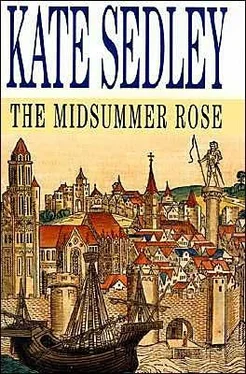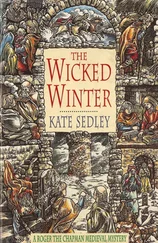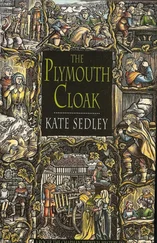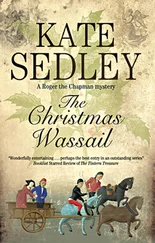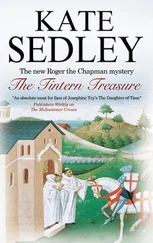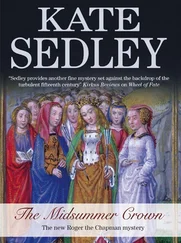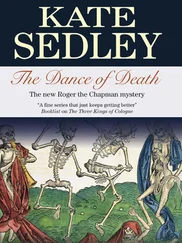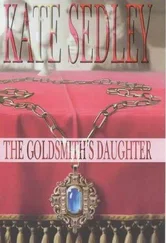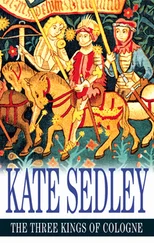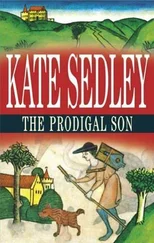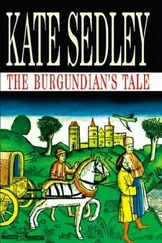Kate Sedley - The Midsummer Rose
Здесь есть возможность читать онлайн «Kate Sedley - The Midsummer Rose» весь текст электронной книги совершенно бесплатно (целиком полную версию без сокращений). В некоторых случаях можно слушать аудио, скачать через торрент в формате fb2 и присутствует краткое содержание. Жанр: Исторический детектив, на английском языке. Описание произведения, (предисловие) а так же отзывы посетителей доступны на портале библиотеки ЛибКат.
- Название:The Midsummer Rose
- Автор:
- Жанр:
- Год:неизвестен
- ISBN:нет данных
- Рейтинг книги:5 / 5. Голосов: 1
-
Избранное:Добавить в избранное
- Отзывы:
-
Ваша оценка:
- 100
- 1
- 2
- 3
- 4
- 5
The Midsummer Rose: краткое содержание, описание и аннотация
Предлагаем к чтению аннотацию, описание, краткое содержание или предисловие (зависит от того, что написал сам автор книги «The Midsummer Rose»). Если вы не нашли необходимую информацию о книге — напишите в комментариях, мы постараемся отыскать её.
The Midsummer Rose — читать онлайн бесплатно полную книгу (весь текст) целиком
Ниже представлен текст книги, разбитый по страницам. Система сохранения места последней прочитанной страницы, позволяет с удобством читать онлайн бесплатно книгу «The Midsummer Rose», без необходимости каждый раз заново искать на чём Вы остановились. Поставьте закладку, и сможете в любой момент перейти на страницу, на которой закончили чтение.
Интервал:
Закладка:
The first memory was of my dream that afternoon, on the river bank. I had not yet worked out its meaning, but where I had been and what I had ‘seen’ was obvious. I had been in the cellars under the synagogue in Jewry Lane nearly three hundred years ago, when the last members of the city’s Jewish community had been massacred by a mob of bloodthirsty citizens. But why had some Jews remained behind when most of their friends and families had already fled? And what were they doing in the cellars? Conjuring up the scene of my dream yet again — almost, you might say, being drawn back into it — I realized what had eluded me before. They had not been trying to get out of the cellar, but had all been crowding up against the furthest wall, just as if … Just as if what? Just as if they had been trying to get through it! Yes, that was it! Through it! And at least two men had been bending down as though searching for something.
At very nearly the same moment, Luke Prettywood’s voice echoed inside my head. ‘My grandfather used to tell me that his grandfather, as a boy, came down here looking for a way into the secret vault that people swore had been built by the Jews in order to house their hoard of gold and silver.’ And another voice, this time Edgar Capgrave’s, joined in chorus with the first. He was describing his meeting with Silas Witherspoon on the evening of Midsummer Day. ‘He was keeping close to the wall of Saint Giles’s and the rest of the buildings, and taking very precise, evenly paced steps … He seemed to be concentrating on his feet.’
Precise, evenly paced steps and concentrating on his feet — what did that suggest? That the apothecary had been counting, perhaps. But what had he been counting? The answer came pat. He had been measuring in paces the distance from the beginning of Saint Giles’s Church to Saint John’s Arch, and had no doubt, at some other time, paced from one end of Saint Giles’s crypt to the further end of the cellars. But had he found a significant discrepancy between the two distances?
Timothy had told me that Silas Witherspoon was a Lancastrian agent, and he could well be one who retained his loyalty to Henry Tudor. If he had discovered, or been warned, what Robin Avenel was up to — or if, equally likely, Robin had tried to recruit him to the cause — then Silas would have been as anxious as anyone to find the missing Albany, probably with orders to kill him on the spot. So, could that make the apothecary the possible murderer of Robin Avenel?
I gave my head a little shake. I was going too fast. First, I had to find out if my newly formed suspicion was correct; that there was indeed a secret hiding place somewhere in the old synagogue cellars and that it was where Albany was being hidden. One other circumstance persuaded me I was right. I had never been able to locate the bed which Jack Nym told me he had taken, on Robin’s instructions, to store in the crypt. But even if I could convince myself of the secret chamber’s existence, I still had to discover how to open it. Had Silas Witherspoon already done so? Was the Scotsman already dead or spirited away? I didn’t know, and only time would tell.
I scraped my stool back from the table and stood up, stretching and yawning.
‘I have to go out again, sweeting,’ I said. And it was only when I met Adela’s outraged gaze that I recollected our quarrel.
I knew that I should stop and make things up between us, but I didn’t have time just then. I was filled with a sudden urgency to put my theory to the test. I would have kissed her, but she ducked away.
‘I won’t be long,’ I promised.
In the bright evening sunshine, I, too, paced the distance of Bell Lane and of Jewry Lane from the Fish Street end of Saint Giles’s to Saint John’s-on-the-Arch. Then I entered the church and descended to the crypt, where I walked its and the two cellars’ length. I did it a second time. And a third, just to make sure. But there was no doubt about it. The interior was shorter than the exterior by a good ten paces.
Once again, I conjured up my God-given dream (although the ‘sight’ can be an instrument of the Devil, as my mother had taken care to warn me) and as far as I could recall, the two men bending down had been in the far right-hand corner of the last of the three chambers. It was too dark to see anything in detail, so I went back upstairs to the church and lit a candle, then descended once more, sheltering the flame with one hand.
I knelt down, holding the candlestick as close to the wall as I was able, but saw nothing except damp stones and spiders, the latter scurrying away in high dudgeon, angry at being disturbed. In spite of the heat outside, the chill struck up through my knees, making me shiver. At least, I persuaded myself it was the cold and not fright that had this effect. I shifted the light again and the shadows assumed new shapes. Still I could see nothing but slime and mould. Then I had an inspiration. I drew my knife from its sheath and began to scrape away the patches of lichen that mottled the wall.
How long I had been down in the cellars, I had no idea. I seemed to be losing all track of time and I was growing sleepy. Deciding to stretch my legs and walk around for a while, I picked up the candle, which I had placed on the floor beside me, but as I did so, something caught my eye. I moved the flame closer to the wall, my heart pounding with excitement. And there it was: a tiny six-pointed star carved into one of the stones where I had recently removed a circle of moss no bigger than a thumbnail. I sat back on my haunches, staring at it and wondering what to do next. Tentatively, I put out my right hand and pressed my fingers to the star …
There was a muted rumble, a slight rattle like a hiccough, and a section of the wall, just about big enough for two men to enter abreast, swung inwards on well-oiled hinges to reveal the chamber beyond. I took a grip on my knife and cautiously stepped across the threshold.
There was some unidentifiable source of fresh air in the chamber, but it was not enough to counteract the strong smell of urine and human excrement that met me, and my eyes were at once drawn to the chamber pot that stood near the end of a bed that occupied most of the room’s cramped space. But there were also a chair, a stool and a table, on which stood the remains of a meal. Three or four lighted candles and a flint and tinderbox stood on a shelf above the bedhead, a chessboard and chessmen were scattered over the floor, as if their owner had thrown them down in a fit of pique, while a green velvet-covered book, its laces all tangled, lay alongside them. And seated on the edge of the bed, eyes wide and staring in alarm, sat a man dressed in a soiled white shirt and dark-red hose. A blue brocade gown, together with a woman’s coif and hood, lay beside him.
Several moments of complete silence followed my entrance while we stared at one another. Finally, the figure on the bed rose slowly and stretched to its full height, which was about as high as my chin, but still no word was spoken. I decided I must break the deadlock.
‘Am I addressing His Grace, the Duke of Albany?’
He replied formally, ‘Alexander Stewart at your service,’ and inclined his head. Then formality was thrown to the winds as he demanded violently, ‘And who in the Devil’s name might you be?’ I saw one hand grope behind him, searching for his dagger, which was lying on the counterpane.
I gave what I hoped was a disarming grin.
‘Thomas Bourchier, Archbishop of Canterbury,’ I said, hoping to make him laugh and, much to my surprise, succeeding. Well, he smiled — quite broadly as a matter of fact.
‘Has Elizabeth sent you?’ His Scots accent was thick, but, as I had remembered from our first encounter, sufficiently anglicised as to be comprehensible to my west country ears.
Читать дальшеИнтервал:
Закладка:
Похожие книги на «The Midsummer Rose»
Представляем Вашему вниманию похожие книги на «The Midsummer Rose» списком для выбора. Мы отобрали схожую по названию и смыслу литературу в надежде предоставить читателям больше вариантов отыскать новые, интересные, ещё непрочитанные произведения.
Обсуждение, отзывы о книге «The Midsummer Rose» и просто собственные мнения читателей. Оставьте ваши комментарии, напишите, что Вы думаете о произведении, его смысле или главных героях. Укажите что конкретно понравилось, а что нет, и почему Вы так считаете.
